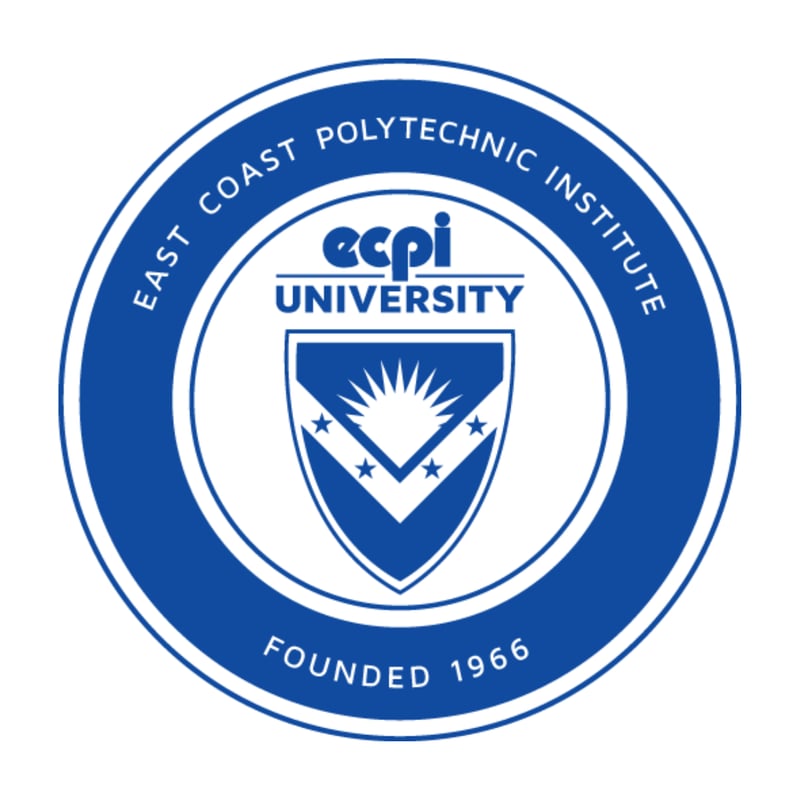
Financial aid (may be available)

No cost info

Financial aid (may be available)

Financial aid (may be available)

Financial aid (may be available)

Financial aid (may be available)

Financial aid (may be available)

No cost info

Financial aid (may be available)

Financial aid (may be available)

Financial aid (may be available)
Learn about the components of supply chains including supply chain networks, supply chain facilities, transportation, and inventory management as well as how emerging technologies affect them with our Supply Chain Fundamentals Certificate. These courses are perfect for learners seeking to enter the supply chain profession, as well as those who are seeking to enter supervisory roles or enter a new domain within the supply chain.
No cost info
This certificate program provides a foundation in supply chain and logistics management from both a U.S. as well as global perspective, preparing participants for professional careers with manufacturers and distributors, transportation carriers, and logistics service providers.
No cost info
American Military University (AMU) offers a logistics management certificate at the graduate level. It provides in-depth study of logistics and supply chain management with consideration of global impacts.
AMU’s online logistics certificate emphasizes transportation factors related to logistics, especially the maritime industry. The curriculum covers topics such as:
Transportation policy and planning
Transportation management and economics
Port and terminal operations
This program is an appropriate choice for those who wish to increase their knowledge of logistics and supply chain management without committing to a full degree program.
No cost info
No cost info
The online Logistics and Supply Chain Management Certificate from CCU will help you gain a deeper understanding of the processes and fundamentals within supply chain and inventory management, including purchasing and inbound logistics; material handling in distribution centers; warehousing and warehouse management; financial and inventory controls; transportation and distribution; and reverse and global logistics.
No cost info

Financial aid (may be available)

$2,730 total

No cost info
No cost info

$2,625 total
If you're interested in pursuing a career in logistics, it's essential to find the right training program to equip you with the necessary skills and knowledge. In Bridgeport, there are several options for logistics classes that can help you kickstart your career in this field. This blog post will guide you through the process of finding the best logistics classes near you and provide insights into what you can expect from these programs.

Logistics is a crucial aspect of any business operation as it involves the management of the flow of goods and services from the point of origin to the point of consumption. Professionals in this field are responsible for coordinating and optimizing various processes, including transportation, inventory management, and warehousing.
A career in logistics offers a wide range of opportunities, with roles such as logistics coordinator, inventory manager, supply chain analyst, and transportation manager. To excel in this field, it's essential to acquire the necessary knowledge and skills through vocational training programs.
Before enrolling in a logistics class, it's important to understand the training requirements for this field. While there are no specific educational prerequisites, most logistics classes require a high school diploma or equivalent. Additionally, some programs may have specific age requirements or require applicants to pass a basic skills assessment.
When searching for logistics classes in Bridgeport, there are several factors to consider to ensure you find the best program for your needs. Here are some key points to look for:
Accreditation: Ensure that the training program is accredited by a recognized accrediting body. This ensures that the program meets certain quality standards and is recognized by employers.
Curriculum: Review the curriculum of the logistics class to understand the topics covered. Look for programs that offer a comprehensive curriculum that includes courses on transportation management, supply chain management, inventory control, and logistics technology.
Hands-on Experience: Practical experience is vital in the logistics field. Look for programs that offer hands-on training opportunities, such as internships or simulated real-world scenarios.
Industry Connections: Programs that have strong connections with local businesses and industry professionals can provide valuable networking opportunities and potential job placements.
Logistics classes typically involve a combination of classroom instruction and hands-on training. Here's what you can expect from the day-to-day activities in a logistics class:
Classroom Instruction: Theoretical concepts and principles of logistics will be taught in the classroom. You can expect lectures, discussions, and group projects to enhance your understanding of the subject matter.
Practical Training: Hands-on training is a crucial component of logistics classes. You may have the opportunity to work with industry-specific software, learn inventory management techniques, and practice transportation planning.
Case Studies: Analyzing real-world case studies is a common practice in logistics classes. This allows you to apply your knowledge to practical scenarios and develop problem-solving skills.
Obtaining a certification in logistics can enhance your job prospects and demonstrate your expertise in the field. While certification is not mandatory, it can give you a competitive edge. Here's an overview of the certification process:
Eligibility: Most certifications require a combination of education and work experience. Check the specific requirements for the certification you're interested in pursuing.
Preparation: Prepare for the certification exam by studying the relevant materials and taking practice tests. There are various study resources available, including online courses, books, and study guides.
Exam: Schedule and take the certification exam. The exam typically consists of multiple-choice questions that assess your knowledge of logistics principles and practices.
Renewal: Some certifications have expiration dates and require renewal after a certain period. Make sure to stay updated with the renewal requirements to maintain your certification.
After completing a logistics class and obtaining relevant certifications, you'll be ready to pursue a career in this field. Here are some resources to help you find related job opportunities in Bridgeport:
Online Job Platforms: Utilize online job platforms such as Indeed, LinkedIn, and Glassdoor to search for logistics job opportunities in Bridgeport. These platforms allow you to filter job postings based on location, experience level, and other criteria.
Networking: Networking is a valuable tool for finding job opportunities. Connect with professionals in the logistics industry through industry events, job fairs, and online networking platforms like LinkedIn.
Once you have established a career in logistics, you may choose to further expand your skill set by taking additional classes. Here are some other classes that can complement your logistics training:
Supply Chain Management: This class focuses on the coordination and management of all activities involved in the supply chain, including sourcing, procurement, production, and distribution.
Project Management: Project management skills are highly valuable in the logistics field. Taking a project management class can enhance your ability to plan, execute, and control logistics projects effectively.
Transportation Management: Transportation is a critical aspect of logistics. Taking a transportation management class can provide you with a deeper understanding of transportation systems, regulations, and optimization strategies.
Warehousing and Inventory Management: This class covers the best practices for managing warehouses and inventory. You'll learn about inventory control techniques, warehouse layout optimization, and efficient storage management.
If you're interested in pursuing a career in logistics, finding the right training program is essential. By considering factors such as accreditation, curriculum, hands-on experience, and industry connections, you can choose a logistics class that aligns with your career goals. Obtaining certifications and leveraging resources like Dreambound can help you find job opportunities in this field. Additionally, exploring other related classes can further enhance your skills and expand your career prospects. Don't hesitate to visit Dreambound for more information on vocational training programs and career options.
Explore Dreambound's in-depth guides, each shedding light on the unique requirements and challenges in cities across the US. For more insights, be sure to check out our other guides.
Thinking about a potential career transition? Dreambound has detailed guides to help you with making informed decisions.
Dreambound's platform allows prospective students to find the right educational program for them through searching, filtering, and connecting with our extensive selection of career & technical education partners.
Dreambound has over 70 programs across healthcare, technology, business, and industrial trades. This includes programs such as Medical Billing, Cybersecurity, and welding.
Some of our schools offer financial aid for those who qualify. Many others offer payment plans, where you can pay the cost of class over time.
Yes, Dreambound offers many online programs. On Dreambound's search, you can filter by online, in-person, and hybrid (part online, part in-person).
Dreambound is completely free for you to use! We are supported by schools and organizations who pay to advertise on our website, so we can offer all of our career resources for free.